The Evolution Of Autism In Film and TV
As someone on the Autistic Spectrum, portrayals of people with ASD (Autistic Spectrum Disorder) in film and television have always been important to me, particularly those characters with Asperger’s. Like many groups I always want to see my community represented in a fair and accurate way. However, there is a long history of autistic or implicitly autistic characters being under used or misrepresented in the media. Today I will be exploring these types of characters, both those that I consider harmful and those that I consider positive representations, to show how they have evolved over time. By doing this I hope to be able to suggest what can be done to continue to create interesting and accurate autistic characters into the future.
For many people the 1988 film ‘Rain Man’ is likely to have been their first exposure to an autistic character. In this film Charlie Babbitt (Tom Cruise) learns of the existence of his brother Raymond Babbitt (Dustin Hoffman) who has inherited his father’s whole estate. Raymond is on the autistic spectrum and lives in an institution until Charlie takes him away in the hope of gaining control of the estate. However, they instead use Raymond’s savant skills to count cards and win a large amount of money at a casino. Whilst I personally believe ‘Rain Man’ was a well-intentioned film aiming to raise awareness about Autism, it is largely responsible for the stereotypes of the community that exist today. One of these being that autistic people are savants, treating Autism as less of a disability and more of a superpower. Another stereotype seen in this film is that autistic people are socially inept, we see Raymond struggling with social cues and needing Charlie or doctors to help him in everyday life. As autism is a spectrum many may relate to these stereotypes, but many may not. However, as ‘Rain Man’ was such a successful film, a lot of portrayals of autism in mainstream film and TV tend to be based around Raymond.
One character that could be compared to Raymond is Sheldon Cooper (Jim Parsons) from the sitcom ‘The Big Bang Theory’, a genius scientist who implicitly has a condition such as autism. In the show, the portrayal of Sheldon’s personality sometimes lacks sensitivity, it is usually used as a joke, with his high intelligence and lack of social awareness used to make him seem weird and neurotic, which for me makes him an unlikeable character. As a result of these traits, Sheldon is frequently isolated from his friends or treated as a nuisance and throughout the series is encouraged to be more “normal”. Another popular character who is speculated to be autistic is Benedict Cumberbatch’s take on Sherlock Holmes. Similarly to Sheldon, Sherlock’s autistic traits are used to make him seem neurotic. Sherlock is also mostly known for his savant abilities being able to solve some of the most difficult mysteries with little support, further feeding into the idea of Autism being a superpower as opposed to a condition. Sherlock’s implicit Autism is also frequently used to make him a parallel to his villains such as Moriarty, suggesting he is just as insane as them. Even Sherlock repeatedly calls himself a “high-functioning sociopath”. Whilst I don’t believe that either of these characters were made to be intentionally harmful portrayals of Autism (in fact, I enjoy Cumberbatch’s performance of Sherlock and can see the appeal of a character like Sheldon), they reinforce stereotypes of Autism which due to their programmes large appeal may influence how people view those on the spectrum.
Despite these previously mentioned characters, I believe there have been many characters who have helped improve the representation of Autism. One of these characters is Abed Nadir (Danny Pudi) from the sitcom ‘Community’, who is heavily implied to have undiagnosed Asperger’s. Whilst like many on the spectrum Abed struggles with social cues, this is not his defining characteristic, which is instead his love of film and TV (can you see why I love this character so much?). Furthermore, ‘Community’s’ quirky characters and surreal tone make Abed’s traits seem less eccentric and therefore make him less of an outcast, with many episodes hinting that he may be the sanest member of the group. Throughout the series Abed is capable of overcoming his poor social skills and becomes part of a group equally lovable misfits, a story I find both inspiring and relatable to my own journey of finding somewhere to fit in. Perhaps this character’s largest impact was on his creator, Dan Harmon, who discovered he had Asperger’s after relating to Abed.
Another great example of an autistic character is Saga Noren (Sofia Helin) from the Scandi-Noir ‘The Bridge’. Her condition is alluded to during the show and Sofia herself believes Saga to be on the spectrum. However, the focus of The Bridge is its mysteries and Saga’s condition is never a central part of the narrative which instead concentrates on her skills as a detective. Whilst it may be easy to brush Saga off as another savant character she is always supported by her partners and other officers, making her feel less isolated than the others. Furthermore, whilst Saga is often helped by her colleagues in social situations, it is typically Saga who guides her partners, subverting the idea that autistic people are always the ones that need help. For me, this makes Saga not only a strong representation of an individual with Autism, but also makes her a solid role model for women with ASD. It is characters like Abed and Saga that I believe provide a more accurate view of people with Autism and I would like to see them influence the creation of similar characters in the future.
Recently, the singer Sia released the film ‘’Music’, which has frequently been criticised for its tone-deaf and offensive portrayal of Autism. With this film’s release many may question whether representation of the ASD community has really improved since 1988. Despite this potential blip, I feel there have been significant developments in the way autistic characters are represented in film and on television. At the suggestion of my family, I have been watching two relatively recent shows that support this idea. One of these shows is the Netflix series ‘Atypical’, which focuses on Sam Gardener (Keir Gilchrist), an 18-year-old with ASD trying to find his first romantic relationship. This show was refreshing to watch not only for having a confirmed autistic character but for taking a grounded look at life with Autism and the way it affects the people in Sam’s life. The other show is ‘Bordertown’, a Finnish crime-drama who’s lead Kari Sorjonen (Ville Virtanen) is implicitly autistic. Whilst Kari does fit the savant stereotype it is handled in a far more realistic way than programmes such as ‘Sherlock’. Furthermore, Kari is a husband and father, a particularly underrepresented group, especially when people on the spectrum are often seen as unable to take care of themselves, let alone a family. It is characters like Sam and Kari that prove to me that media producers are still able to produce strong autistic characters, which gives me hope that we will continue to see characters like this into the future.
In conclusion, I believe the way the Autistic Spectrum is seen in the media has evolved significantly over time, with those early Rain Man-esque stereotypes being refreshingly challenged in recent years. Whilst there have been characters which could be considered less reflective of the community, the repeated attempts to include characters who are autistic, or are suggested to be, shows that the media is more willing to positively portray this group. Going forward I would like to see programme and film creators take inspiration from some of the examples I have mentioned. Having more characters who are confirmed to be autistic, from a variety of backgrounds (including women, parents, various ethnicities). I also believe we need more characters who aren’t defined solely by their Autism, such as Abed’s love for films or Saga’s passion for her work. By doing this not only will audiences with autism be able to better connect with the characters, but viewers in general will continue to gain a greater understanding of this varied condition and how to treat people on the spectrum in real life.
Author's note: I'd like to thank everyone who's supported this blog so far by reading it, it means a lot to me. I plan to continue to update every 1-2 weeks, so be sure to keep checking back to see when I do. For those who don't know I've opened an Instagram page (@noisesinaquietworld) where I will notify my followers when I upload, so be sure to follow it if you want to know exactly when I upload.
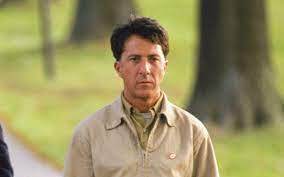

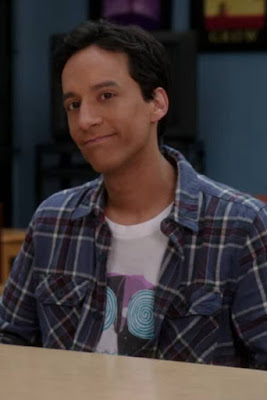
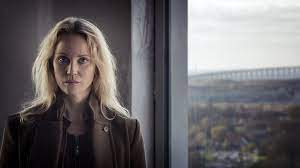
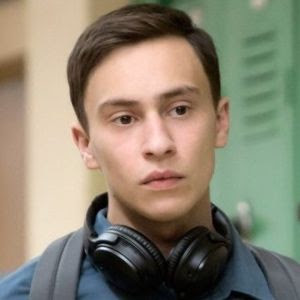

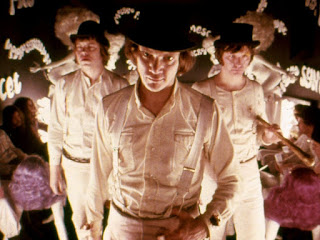
I have to admit, Rainman came out when I was a teenager and that was the first time I had even heard of autism, and I’m guessing that would be the same for most, if not all of my peers. Although looking back, I’m wondering if a few people I’ve met over the years could actually have it and if I’d known, would I have treated them differently? I’m not sure - these days of diversity & inclusivity makes it harder to treat anyone differently, for fear of being seen to do the wrong thing. I’m lucky in that I’ve been gifted with a magnificent nephew with ASD who wouldn’t hesitate to correct me if I treated him the wrong way. Lucky me.
ReplyDeleteGoing back to the film, despite Raymond having autism, the main takeaway of that film for me was the brotherly love between them and how someone so consumer driven and narcissistic could learn to appreciate and love someone so different, so unexpectedly, and despite Charlie being the ultimate salesman, he can’t con an autistic with his good sales talk. It’s a lovely feel good film and quite a few laugh out loud moments. There’s lessons for everyone in that film.